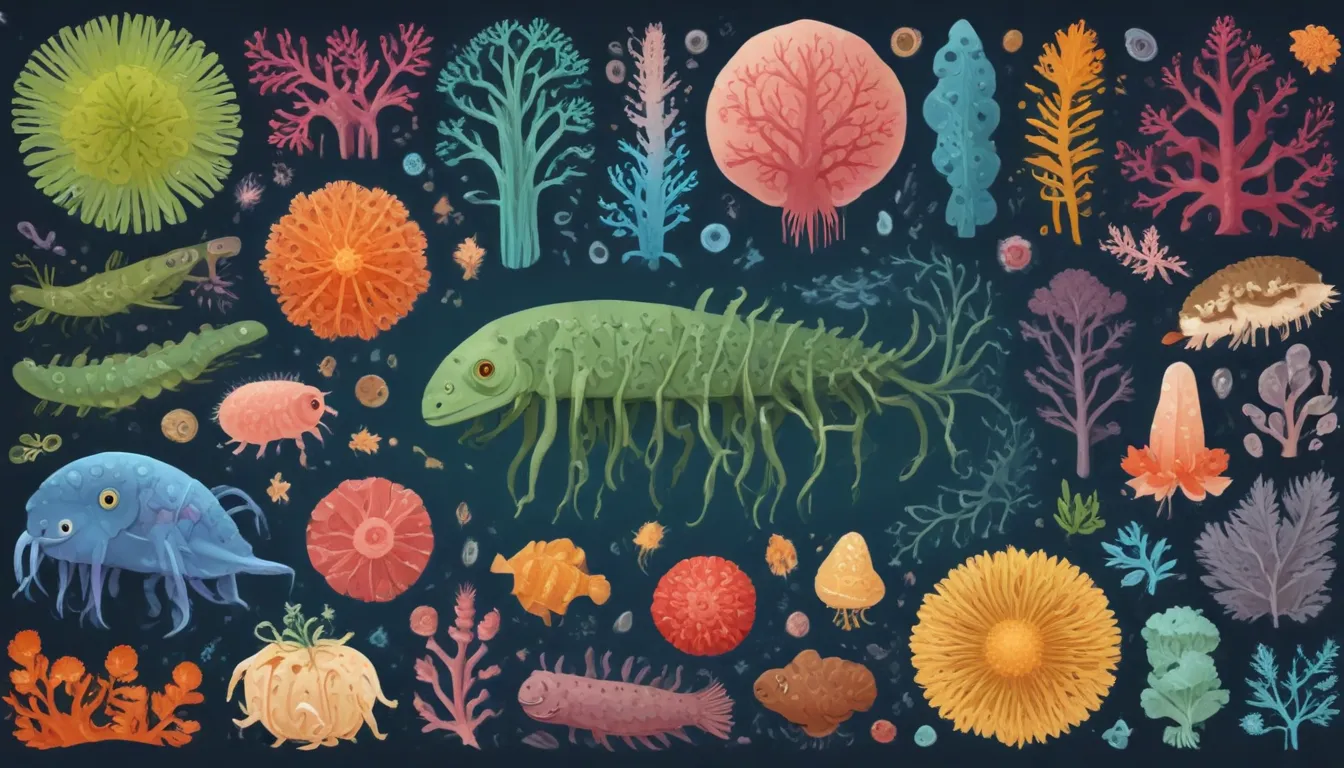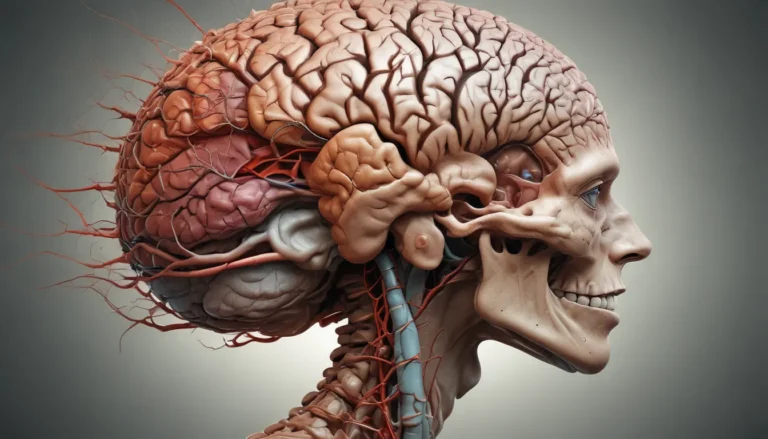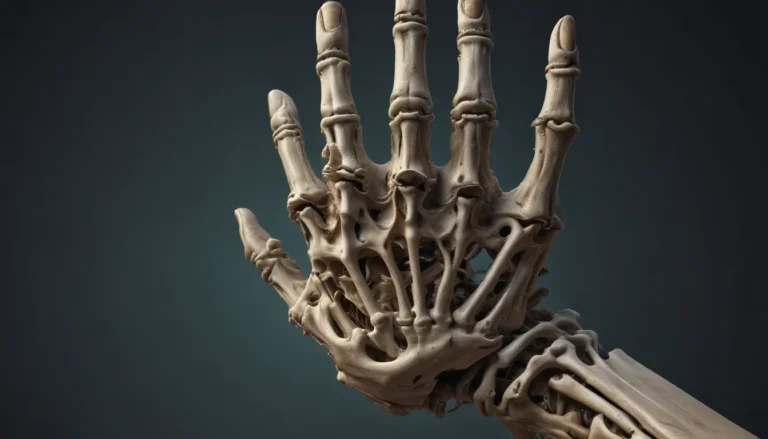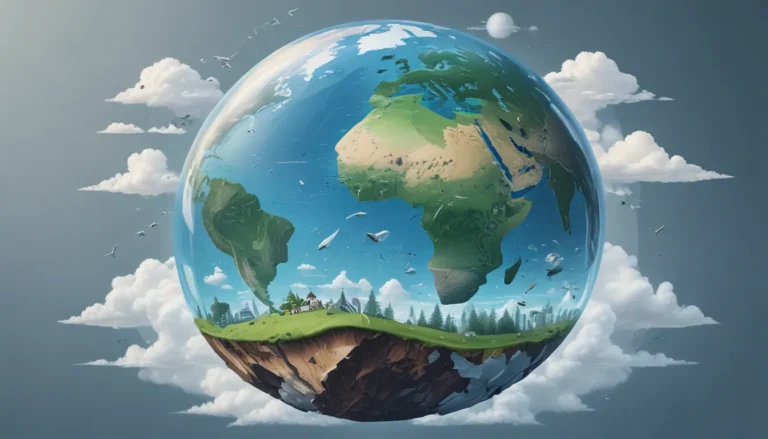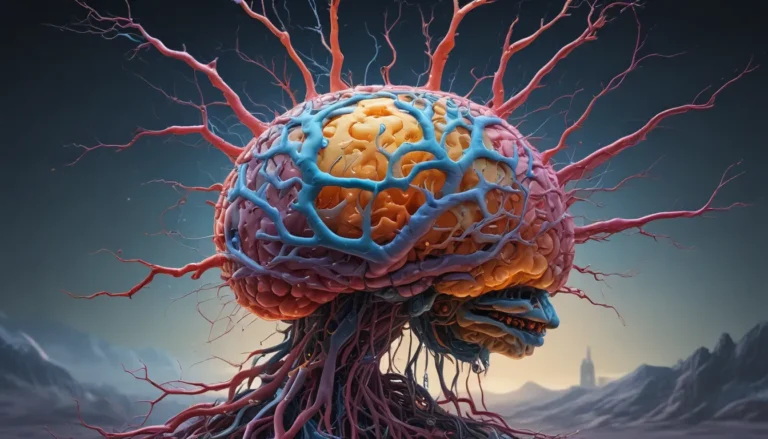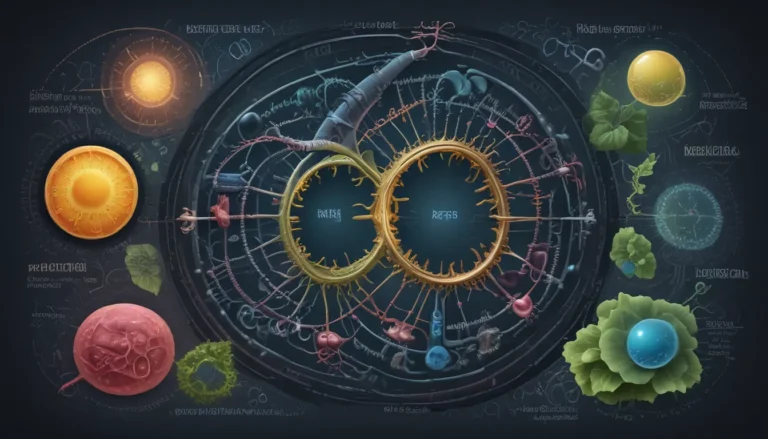A Note About Images: The images used in our articles are for illustration purposes only and may not exactly match the content. They are meant to engage readers, but the text should be relied upon for accurate information.
Microbial diversity is a captivating subject that offers a glimpse into the intricate world of bacteria, archaea, fungi, viruses, and other microorganisms that shape life on Earth. These tiny beings, often unseen to the naked eye, play crucial roles in maintaining ecosystem balance, influencing human health, and driving essential biogeochemical processes. In this article, we will delve into 16 fascinating facts about microbial diversity that highlight the remarkable nature of these microorganisms.
The Teeming World of Microorganisms
Microbes dominate life on Earth, with an estimated 5 x 10^30 individual microorganisms inhabiting our planet. Their sheer abundance and diversity contribute significantly to ecosystem dynamics, highlighting their essential role in maintaining the delicate balance of life.
Microbial Marvels in Every Environment
Microbes have adapted to thrive in diverse and extreme environments, from the deepest oceans to the highest mountains. These resilient organisms can survive in hot springs, frozen tundras, acidic lakes, and even within the human body, showcasing their incredible adaptability and versatility.
The Essential Role of Microbial Diversity
Microbes are crucial for global nutrient cycling, breaking down organic matter, and recycling essential nutrients back into the ecosystem. From nitrogen fixation to carbon cycling and decomposition, microbial activities ensure the availability of vital elements for all life forms on Earth.
Microbial Impact on Biogeochemical Processes
Through various metabolic activities, microbes influence Earth’s chemical composition by participating in processes like photosynthesis, nitrification, denitrification, and sulfur cycling. These activities shape atmospheric and terrestrial chemistry, highlighting the significant role of microorganisms in driving biogeochemical processes.
Extremophiles: Pioneers in Extreme Environments
Some microorganisms, known as extremophiles, thrive in harsh environments that are uninhabitable for most life forms. These extremophiles can withstand extreme temperatures, high salinity, low oxygen levels, and intense radiation, showcasing their remarkable adaptability and survival strategies.
Microbial Contributions to Human Health
While some microbes can cause diseases, many others have beneficial effects on human health. The human microbiome, consisting of trillions of microbial cells, plays a vital role in influencing the immune system, digestion, and overall well-being, underscoring the intricate relationship between microbial diversity and human health.
Microbial Evolution Through Billions of Years
Microorganisms have been present on Earth for billions of years, with fossil evidence suggesting their existence around 3.5 billion years ago. These ancient beings have shaped the evolution of life on our planet, playing pivotal roles in the development of symbiotic relationships and helping organisms adapt to environmental changes.
Unlocking the Potential of Microbial Diversity
Microbes are a rich source of bioactive compounds that hold potential for the development of new drugs. Many antibiotics, antifungals, and anticancer agents have origins in microbial metabolites, highlighting the untapped potential of microbial diversity in the field of medicine.
Environmental Cleanup Through Bioremediation
Certain bacteria and fungi possess the unique ability to break down pollutants and waste materials through a process known as bioremediation. Harnessing the power of microbial diversity, these organisms offer a natural solution for cleaning up contaminated sites, highlighting their role in environmental restoration.
Communication and Collaboration Among Microbes
Microorganisms can communicate and coordinate their activities through a phenomenon called quorum sensing. This communication enables them to function collectively, forming complex and beneficial microbial communities that drive various ecological processes.
Harnessing Microorganisms for Biotechnology
Microorganisms have been utilized in biotechnology and industrial processes for centuries, playing a crucial role in the production of food, beverages, biofuels, and valuable proteins. Through genetic engineering and manipulation, microbes can be tailored to produce a wide range of industrially important compounds.
The Protective Role of Microbial Diversity
A diverse microbial community can help prevent the colonization and proliferation of harmful pathogens through microbial competition. This natural defense mechanism offers protection against disease-causing organisms, highlighting the importance of maintaining microbial diversity for ecosystem health.
Microbial Survival in Space
Experiments conducted on the International Space Station have revealed that certain microorganisms can survive and thrive in the harsh conditions of space, including extreme temperatures, vacuum, and radiation. This discovery has implications for the possibility of microbial life existing on other planets, expanding our understanding of extraterrestrial life.
Microbes and Greenhouse Gas Production
Some microorganisms contribute to the production of greenhouse gases, such as carbon dioxide, methane, and nitrous oxide. Their activities play a significant role in global climate change and the regulation of Earth’s temperature, underscoring the complex interplay between microbial diversity and environmental processes.
Unraveling the Mysteries of Microbial Diversity
Despite the wealth of knowledge we have accumulated about microorganisms, the majority of microbial diversity remains unexplored. Countless species and their ecological roles are yet to be discovered, emphasizing the need for continued research and exploration to unlock the secrets of microbial diversity.
Exploring the Boundless World of Microbial Diversity
In conclusion, the realm of microbial diversity offers a fascinating journey into the hidden world of microorganisms that shape life on Earth. From their pivotal roles in nutrient cycling and environmental cleanup to their potential applications in medicine and biotechnology, microbes continue to intrigue scientists and offer valuable insights into the complexities of life. As we unravel the mysteries of microbial diversity, we gain a deeper appreciation for the interconnectedness of all living beings on our planet and the potential for harnessing the power of microbes to address global challenges and improve human health and well-being.
FAQs About Microbial Diversity
Q: What is microbial diversity?
A: Microbial diversity refers to the variety of microorganisms found in a specific environment, including bacteria, fungi, viruses, archaea, and other microscopic organisms.
Q: Why is microbial diversity important?
A: Microbial diversity is crucial for ecosystem stability, nutrient cycling, human health, and various industries such as agriculture, pharmaceuticals, and biotechnology.
Q: How do scientists study microbial diversity?
A: Scientists utilize techniques such as DNA sequencing, metagenomics, and culturing methods to study microbial diversity, allowing for the identification and analysis of different microbial species in a given sample.
Q: Can microbial diversity impact human health?
A: Yes, microbial diversity plays a vital role in human health, influencing digestion, immune function, and overall well-being. Imbalances in microbial diversity have been linked to various diseases and conditions.
Q: Are all microorganisms harmful to humans?
A: No, many microorganisms are beneficial and essential for human health, aiding in nutrient absorption, pathogen protection, and overall bodily functions.
In conclusion, delving into the captivating world of microbial diversity offers a deeper understanding of the intricate relationships and essential roles that microorganisms play in shaping our planet. As we continue to explore and unravel the mysteries of microbial diversity, we gain valuable insights into the complexities of life and the potential for harnessing the power of microbes to address global challenges and improve human health and well-being.
